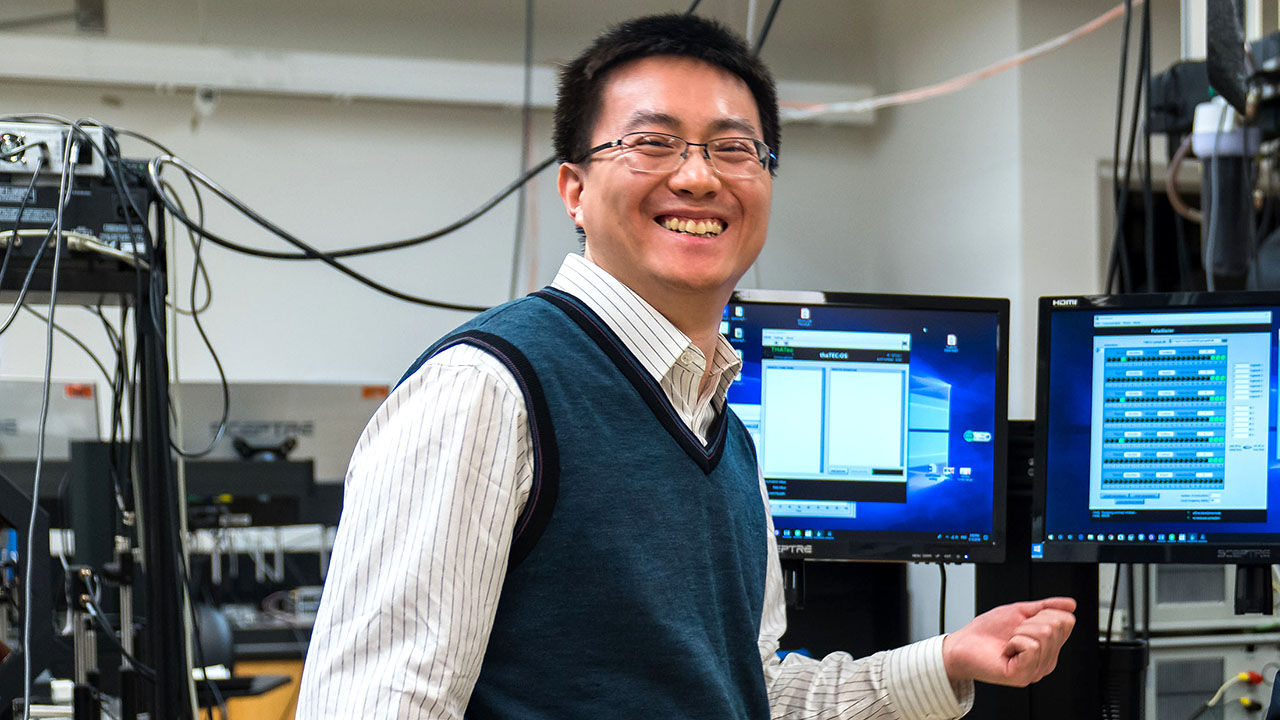- YouTube
- TikTok
OU physics professor earns prestigious CAREER award from NSF

A project that is part of a new scientific wave that could revolutionize the electronics industry has earned Dr. Wei Zhang, an assistant professor of physics at Oakland University, the National Science Foundation’s Faculty Early Career Development Program (CAREER) Award.
The award is presented annually to non-tenured faculty who have demonstrated the potential to serve as academic role models in research and education, and to lead advances in the mission of their department or organization.
“The CAREER Award is the National Science Foundation’s most prestigious award presented to young faculty members,” said Dr. David Stone, OU’s chief research officer. “Professor Zhang, who is an alumnus of our PI Academy, has impressed our Research Office and now the NSF with his research thus far. By earning this latest vital financial support, he will be able to continue his work for the next five years in a very exciting space within the physics community.”
Over a five-year period, Zhang will receive approximately $500,000 from the NSF, which he plans to use to explore how a material’s quantum properties, either natural or artificially engineered, can be utilized effectively to enhance future electronic device performance.
“Quantum spintronics is a relatively new field that’s trying to revolutionize the current electronic industry by using the quantum mechanical property of electrons to develop new electronic devices that are faster, more secure, and more energy efficient,” Zhang said. “What we’re looking at first are the ‘building blocks’ — the stuff that will eventually make a complete device.
“While we’re not going to impact the industry just yet, this is fundamental research,” he added. “It has the potential to revolutionize technologies in Big Data, Advanced Electronics, and the Internet of Things.”
Funds from the NSF CAREER Award will also involve education and outreach activities, including the development of quantum spintronic laboratory modules at Oakland University.
“I’m really looking forward to pursuing the proposed project topics over the next five years as we push the frontiers of research and interact with students through community outreach,” Zhang said.
In addition to this latest recognition from the NSF, Zhang and fellow researchers had their work published in Physical Review Letters and were featured in an OU News story in March 2019.


 January 23, 2020
January 23, 2020